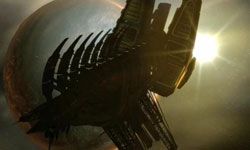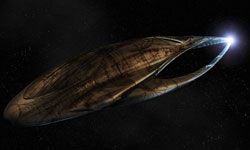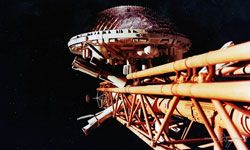The sci-fi genre has gifted audiences with some of the most iconic spaceships in film and television history, each contributing uniquely to our cultural understanding and appreciation of deep space exploration. From the groundbreaking visual effects of "2001: A Space Odyssey" to the epic narratives of the "Star Wars" saga and "Star Trek" original series, these science fiction films and TV series have introduced us to a variety of spaceships.
In fact, some of the coolest ships didn't make the list. Let's take a look at some of the best sci-fi spaceships we haven't covered:
Discovery One
Stanley Kubrick’s "2001: A Space Odyssey" stands as a monumental achievement in sci-fi history. Rather than featuring an old-fashioned flying saucer, Kubrick’s film presents spaceships with a strong basis in scientific prediction, showcasing a level of realism and attention to detail that was unprecedented. Discovery One is designed with a utilitarian aesthetic, reflecting the director’s commitment to portraying space travel in a believable manner.
Millennium Falcon and Death Star
George Lucas introduced us to the Millennium Falcon and Death Star in his "Star Wars" films. Known for its speed and agility, the Millennium Falcon is a core element of the "Star Wars" universe, with its ability to travel beyond light speed. Though it's more accurately described as a space station due to its immense size, the Death Star is also one of the greatest spaceships in motion picture history. Its ability to destroy entire planets highlights the potential perils of advanced technology in the wrong hands.
USS Enterprise
"Star Trek," another cornerstone of the sci-fi genre, presented the USS Enterprise. It's a spaceship designed for exploration and peacekeeping missions in deep space. The Enterprise is equipped with warp drive, a hypothetical method of faster-than-light travel, enabling it to travel vast cosmic distances. The iconic space ship is the main setting for the original series and its subsequent movies. Like many fans, we say, "Beam me up, Scotty."
This article was updated in conjunction with AI technology, then fact-checked and edited by a HowStuffWorks editor.










